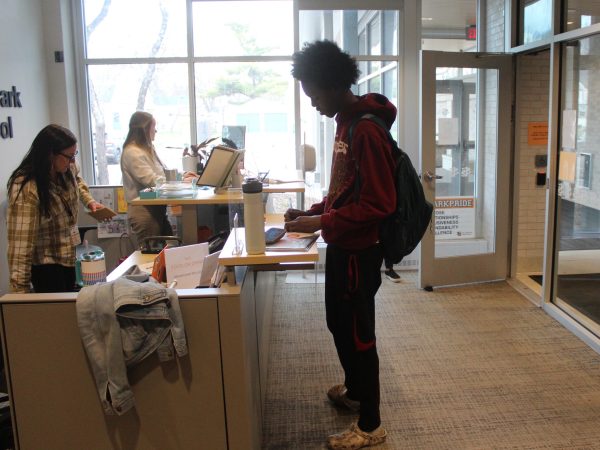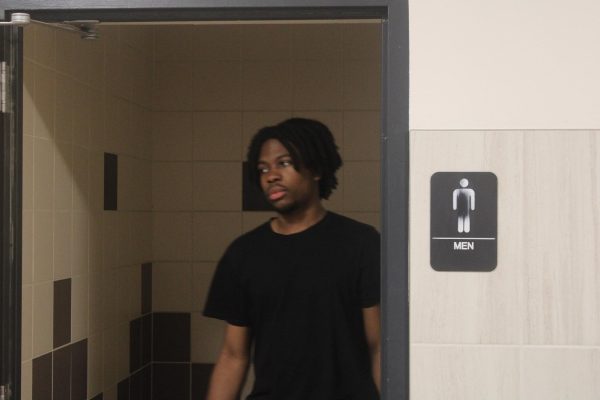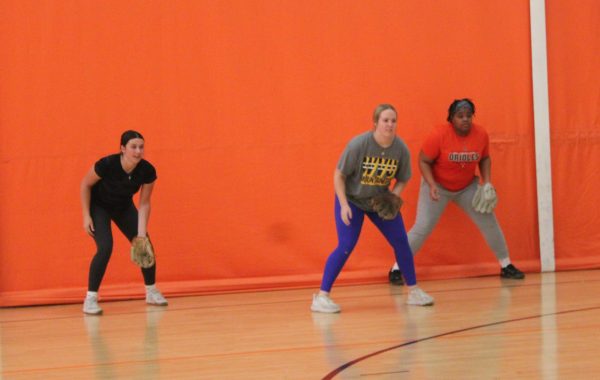Let me SLPee
Pass restrictions at Park harmful, anxiety-inducing
May 16, 2023
This year, Park has begun to implement new school policies in order to start to “normalize” school after COVID-19. These policies include new grading systems, phone policies and weirdest of all, pass restrictions. It’s not uncommon for students to skip class to talk to their friends or just avoid class, but it’s also not common for schools to begin limiting students’ rights to bathroom or pass access. While these new policies aim to improve attendance, they’re going about it the wrong way.
This year, Park has begun to implement “no pass days” seemingly at random. Sometimes these days have logic to them, such as restricting passes during finals days to reduce hallway noise and because most people won’t/can’t leave their classes during their final. However, many of these days are random and frustrating. Not being able to get a pass unless it’s an “emergency case” is not only unfair, but it’s degrading. Students shouldn’t have to explain why they need to go to the bathroom, and it’s often uncomfortable to explain how badly you need to poop or how you need to change your tampon. The increased anxiety around explaining why your case for a pass is an “emergency” discourages many students from even trying to go to the bathroom during school, which ultimately harms their health.
You can’t effectively use the bathrooms during Park’s passing period. Park’s passing period is only five minutes, and with the size of Park, as well as the hallway traffic, it typically takes a good three minutes to actually get to class, and two minutes isn’t enough to use the bathroom and wash your hands. If you’re lucky enough to have time to use the bathroom, it’s not uncommon to walk into a bathroom and find all the stalls already full.
As someone with a gastrointestinal disorder, these restrictions are harmful. It’s already hard enough to find an open bathroom, not to mention that the bathrooms are littered with trash, missing toilets and reeking of body odor. Using the bathroom at school can already cause bathroom anxiety, and many students choose to resist the urge until they get home. With these new restrictions, people’s anxiety around using the bathroom is increasing, with more caveats to going to the bathroom, as well as more pressure to use the bathroom quickly. When you can’t use the bathroom when you need to, you train your body to use bad bowel habits, and it can often lead to stomach complications and chronic constipation.
If you know anything about stomach issues, you know that bathroom anxiety often exacerbates stomach issues and can cause many complications within teens’ gastrointestinal systems. If you factor in teen’s stress levels, they are even more prone to stomach complications. Whenever I have increased anxiety, I tend to experience flare-ups in my disorder as well. So why don’t I get a medical bathroom pass? The truth is, that process isn’t easy at Park. I’ve had my doctors’ note faxed over twice, yet I still haven’t been able to receive a pass. The main office and nurses office are busy, and it’s hard to communicate with them to receive a legitimate pass. I’m still in the process of receiving my pass, but not everyone has the ability to access a bathroom pass. It’s clear that bad bowel habits harm everyone, so why is Park restricting teens’ access to bathrooms further?
Furthermore, no pass days are harmful to people with special accommodations, even when they come with special laminated passes. No pass days are confusing, especially for substitute teachers who aren’t familiar with the exceptions to these rules, and it’s not uncommon for a student with an accommodation to be denied the right to use their pass on no pass days due to confusion. I have friends who have been denied their diabetic accommodations to leave class to deal with blood sugar issues because their subs don’t fully understand the caveats that come with a no pass day. Additionally, what is and isn’t an “emergency” is incredibly confusing and puts a lot of pressure on teachers alone to fairly enforce no pass day policies to avoid getting in trouble, which can lead teachers to become more strict. Clearly, the limits on no pass days at Park aren’t clear enough to work or accommodate those with disabilities, so I don’t understand why Park still continues this policy.
Instead of restricting pass accessibility, Park should use other means to boost attendance. Increasing access to mental health resources will allow students to get more support and get to the core issue of why they’re not attending class, rather than forcing them to find a new place to skip class. Updating the curriculum to be less Euro-centric may also boost attendance, as students of color may feel more at place and represented within their classes, and therefore be more inclined to attend. If Park insists on restricting pass usage, they should consider opening up more bathrooms so students can use them during passing periods and shorten the time spent looking for an open bathroom. Park should also consider adding some sort of form students can fill out to receive medical passes, instead of having them communicate through email with the main office, and provide more comprehensive guidelines on how students with accommodations may still use their passes, and what an emergency truly is. Overall, Park needs to consider revising its pass policies in order to maintain student health and reduce bathroom anxiety.












